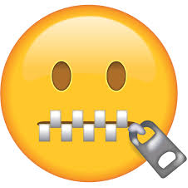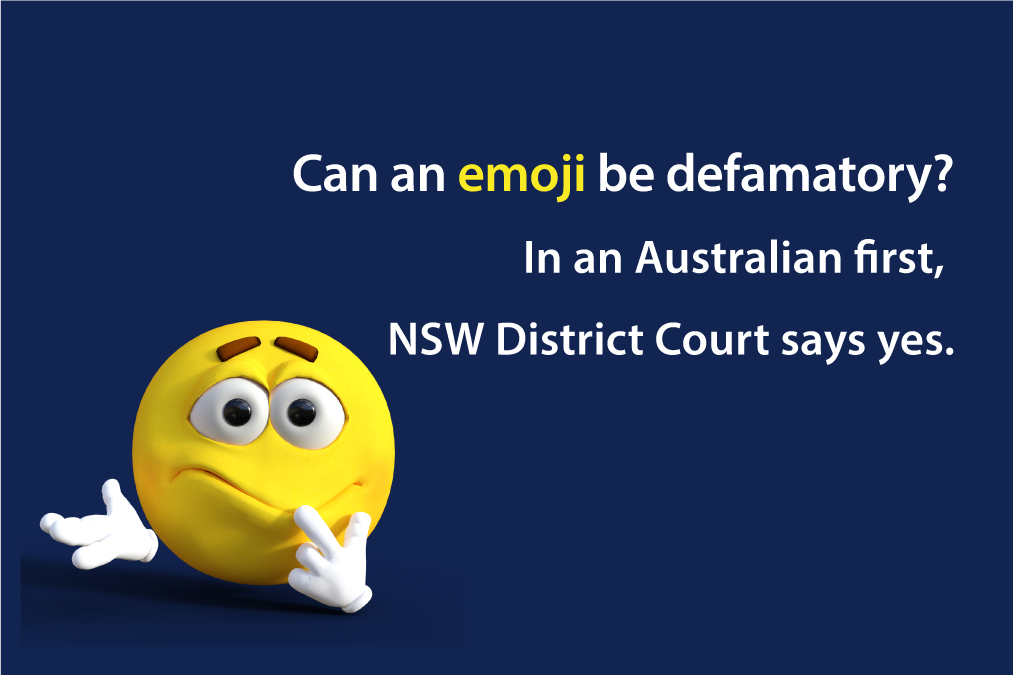
The meaning of the ‘zipper face’ emoji was recently explored in a defamation case – does the expression a picture is worth a thousand words apply to emojis and, if so, can an emoji be found to be defamatory?
Two Sydney-based lawyers, Adam Houda and Zali Burrows, recently faced off in the NSW District Court in a preliminary hearing over a twitter conversation that featured the ‘zipper face’ emoji. Ms Burrows commenced proceedings in August following a tweet posted by Mr Houda in May, which he linked to an article containing a suggestion from a Judge that Ms Burrows’ conduct in one case be referred to the Law Society for potential disciplinary action.
A twitter user responded to the tweet, asking what had happened to Ms Burrows. Mr Houda replied:

According to Ms Burrows’ lawyers the tweets conveyed a range of false and defamatory claims, including that she “so misconducted herself during a court case that the judge recommended that she be referred for possible disciplinary action”, and was in fact disciplined.
In response, Mr Houda’s lawyers said that the ‘zipper face’ emoji indicated that Mr Houda was unable to reply to the question.
In reaching a verdict, the Judge noted “This appears to be the first time that a court in Australia has been asked to rule on the capacity of an emoji to convey defamatory meaning, so it is a topic which I should approach with some care.”
The Judge referred to the Oxford English Dictionary for a definition of an emoji which was as follows: “A small digital image or icon used to express an idea, emotion, etc., in electronic communications.” In defining the meaning of the ‘zipper face’ emoji, she referred to Emojipedia, which states that the emoji “commonly conveys a secret or that someone will keep one (e.g., My lips are sealed). May also be used to tell someone to stop talking (e.g., Zip it! or I’ll shut up now).”
The Judge concluded that the ‘zipper face’ could convey false and defamatory information, and ordered Mr Houda to pay Ms Burrows’ costs.
In the digital age, it’s easy to respond quickly and without much thought online. Emojis are a staple part of online conversation, however, businesses and individuals alike should take care in using them. An emoji should be treated no differently than an image in that it can pose a significant risk and leave you open to liability if found to be defamatory.
If this matter raises any concerns that you have regarding the use of emojis through your personal or business’ commercial social media channels, please reach out to me on 0402 136 083 or emacfarlane@macfarlane.law.


